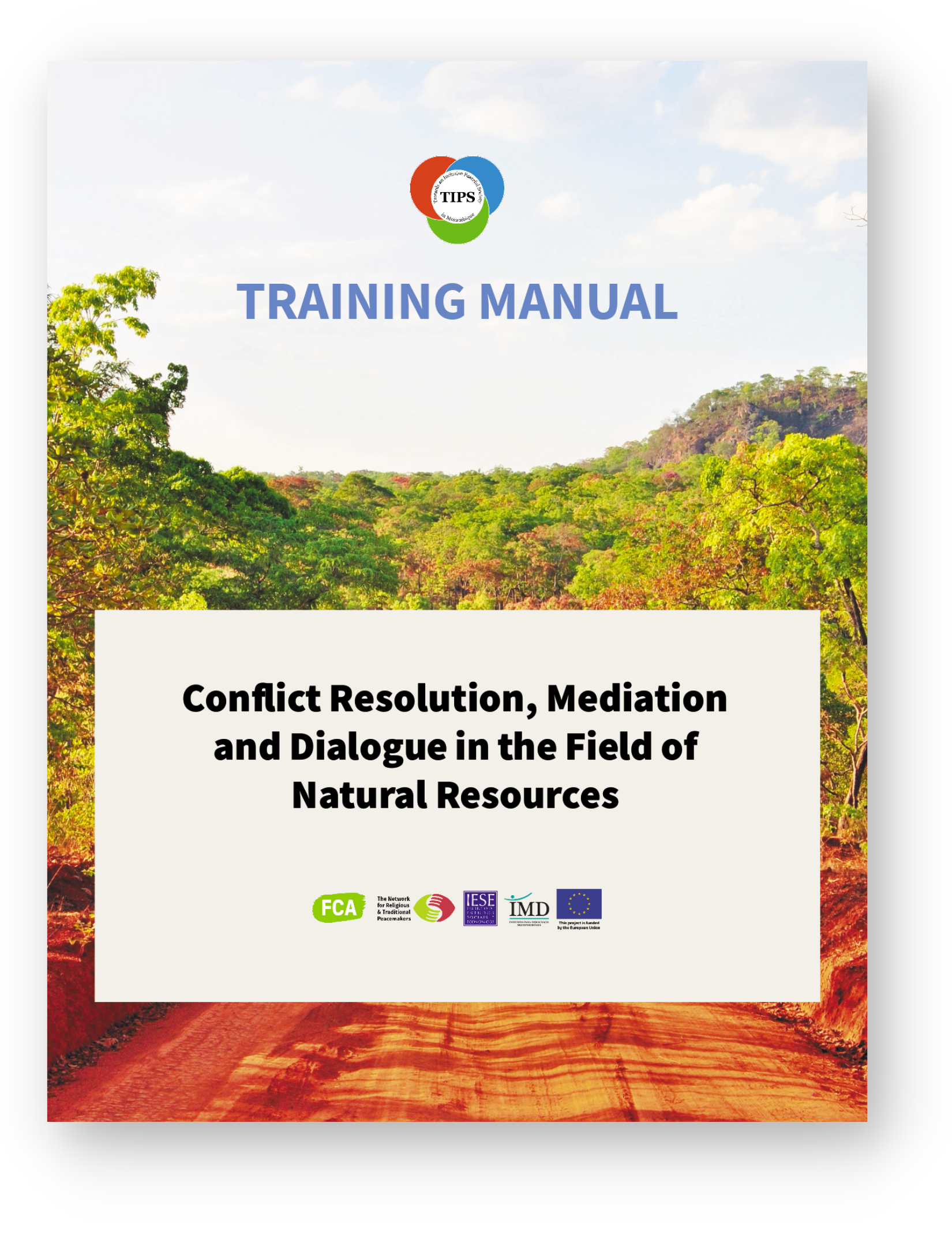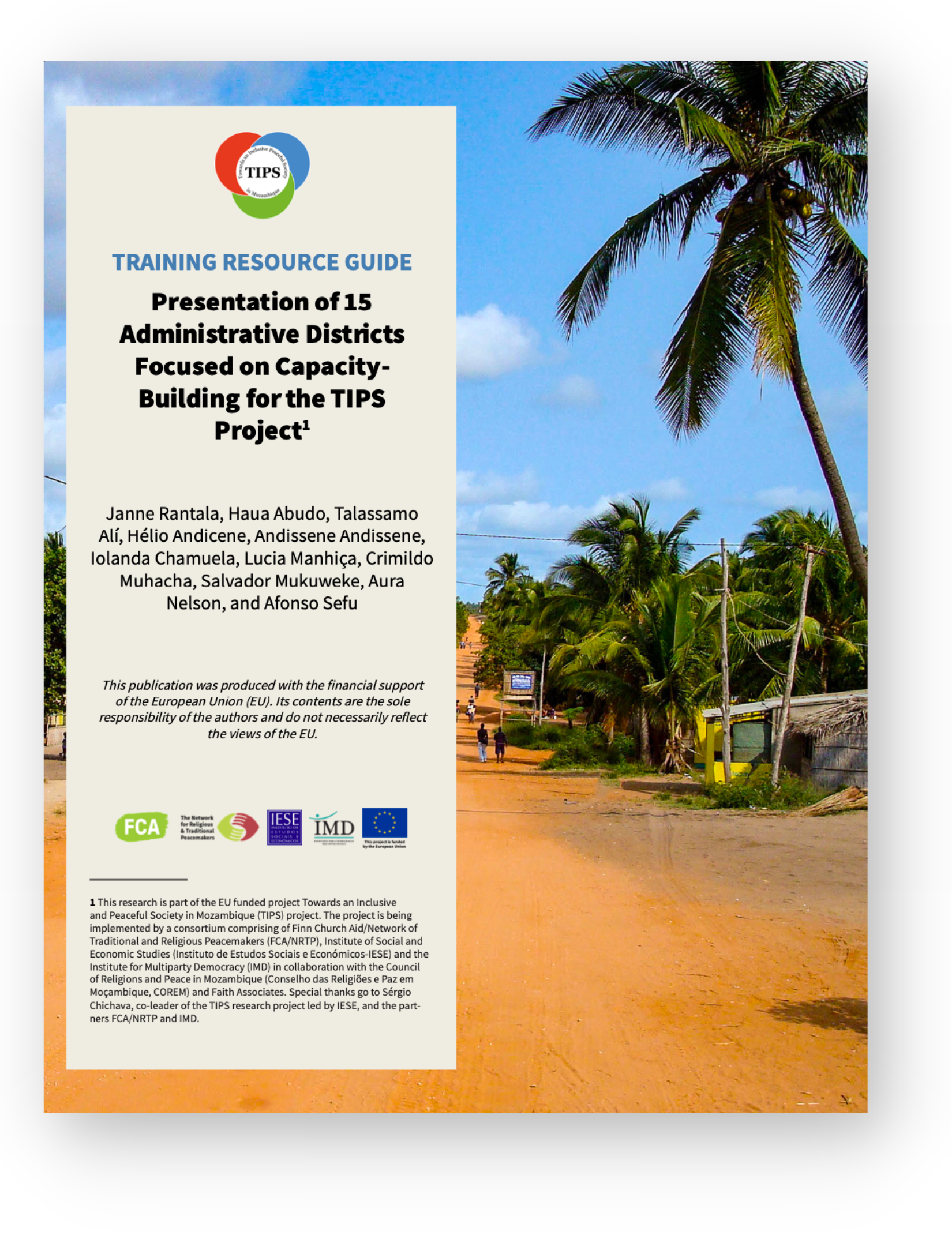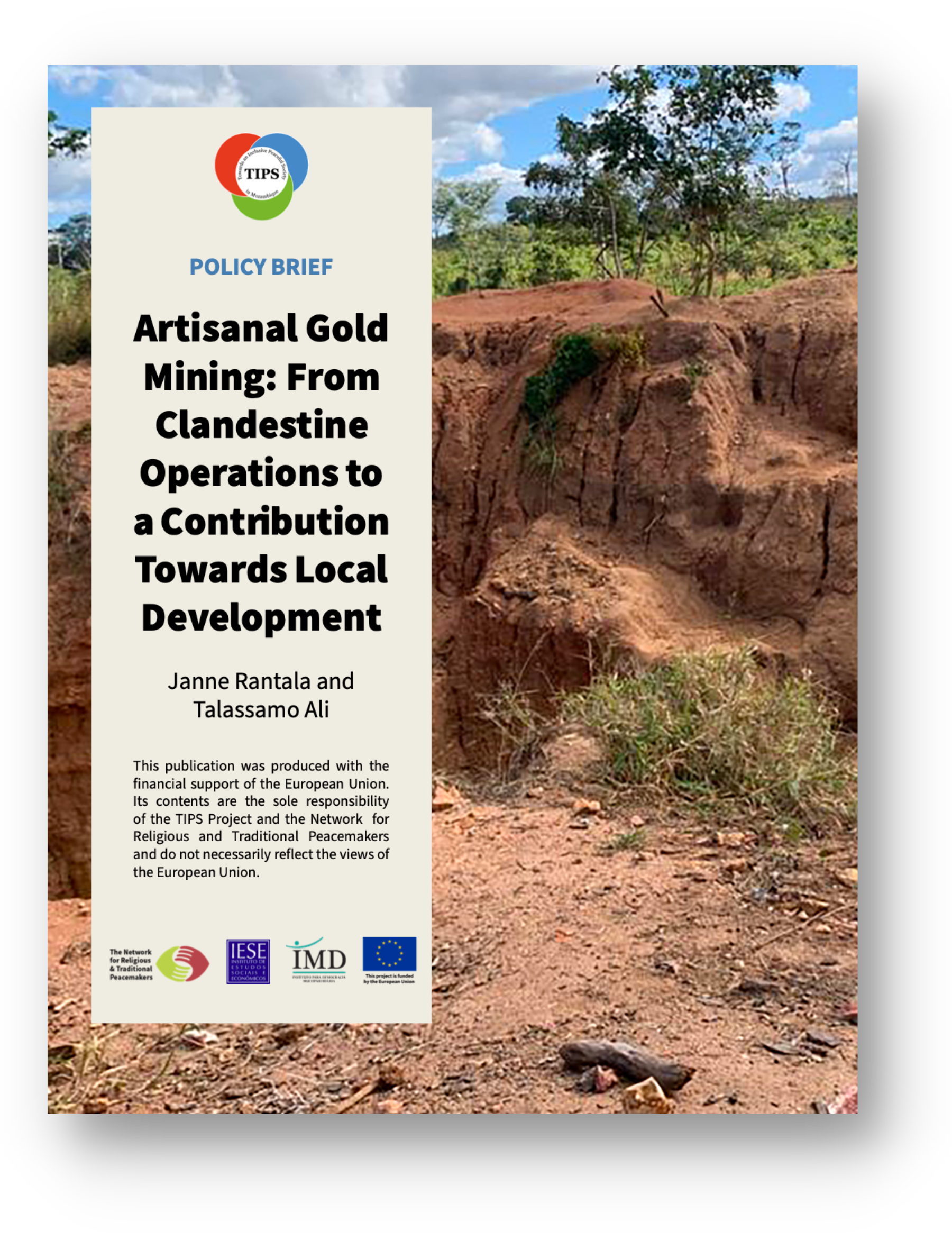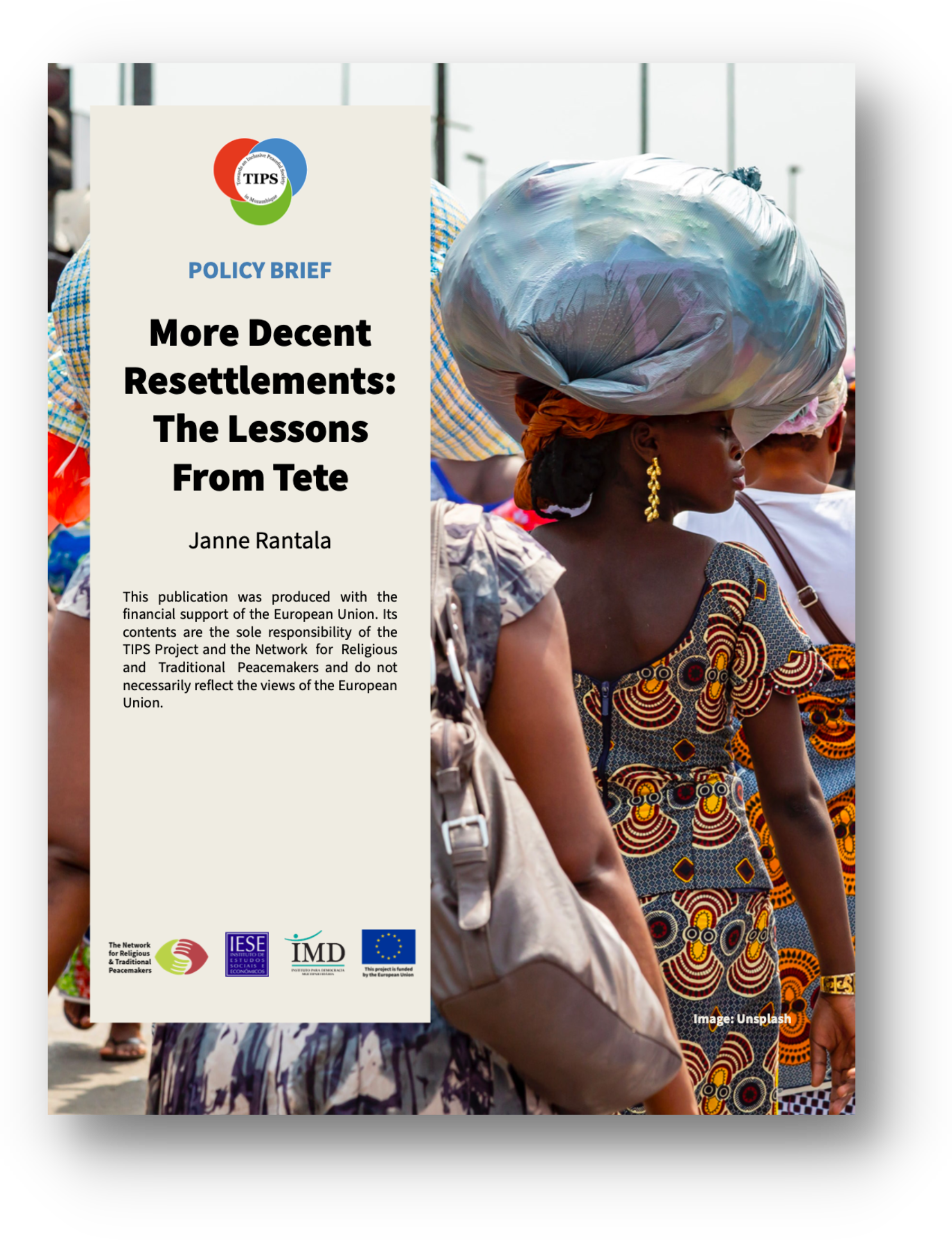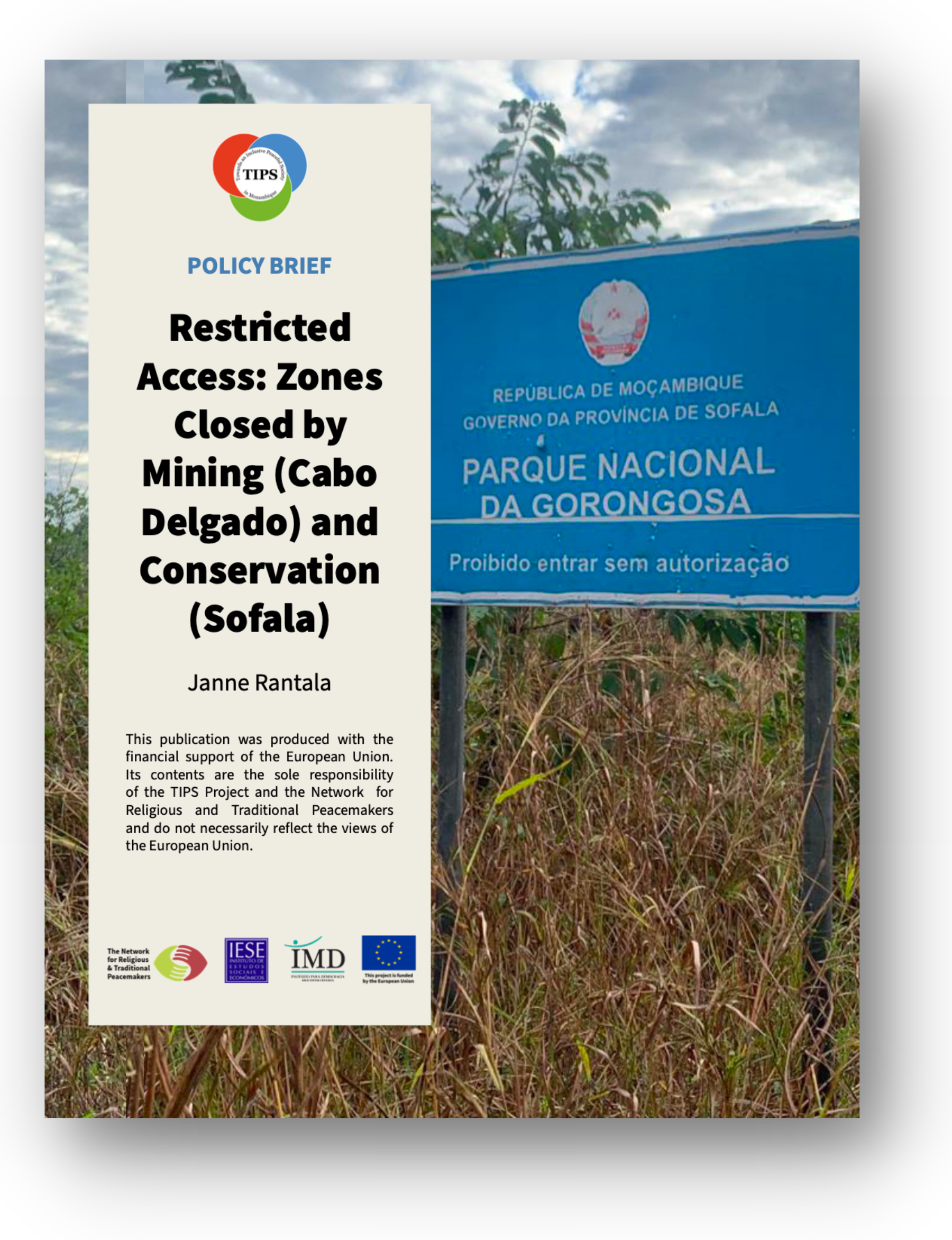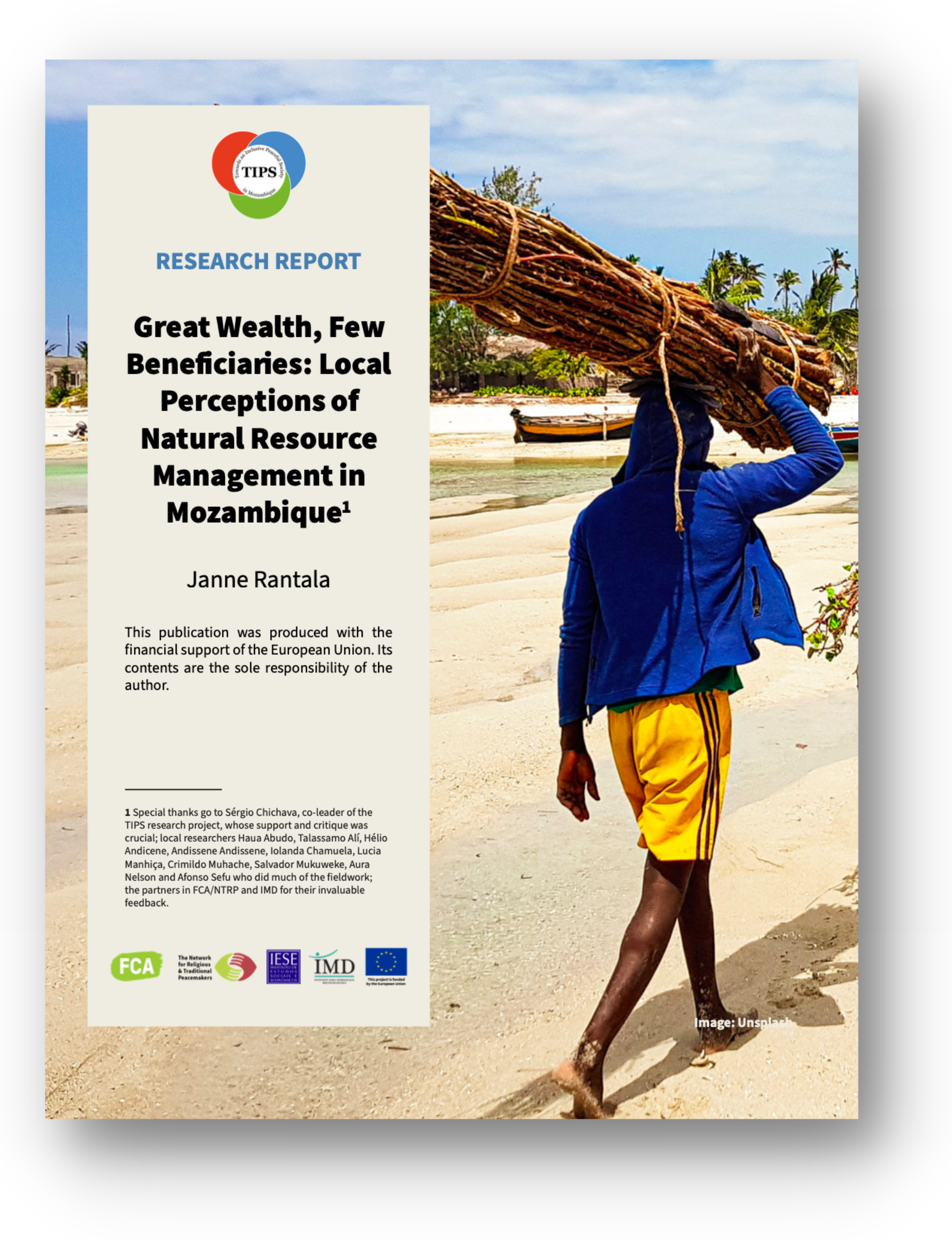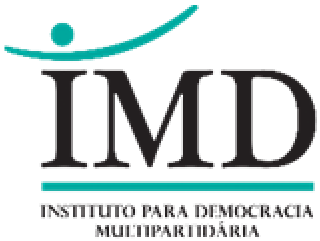Towards an Inclusive and Peaceful Society in Mozambique

‘Towards an Inclusive and Peaceful Society in Mozambique’ (TIPS) is a European Union-funded project that aims to contribute to conflict prevention, crisis preparedness, and response and peacebuilding through inclusive natural resource governance and management by strengthening the leadership and capacities of civil society actors as well as preventing and addressing natural resource-based conflicts through multi-stakeholder dialogue and engagement in Mozambique.
The outcomes of the project are 1) Increased collaboration and mutual learning between communities, CSOs, national and provincial authorities, and the private sector on conflict resolution and natural resource management (NRM), and 2) Enhanced and institutionalized participation of target CSOs in natural resource governance and development processes.
TIPS is supported by a consortium of partners comprised of the Network for Religious and Traditional Peacemakers (NRTP)/Finn Church Aid (FCA), Instituto para a Democracia Multipartidária (IMD), Instituto de Estudos Sociais e Económicos (IESE) and in collaboration with project associates, The Council of Religions in Mozambique (COREM) and Faith Associates.
Recent Webinars
Research Briefs: Natural Resource Management in Mozambique
Publications
2023
Policy Brief: Challenges and Dynamics in Exploitation and Management of Natural Resources in Niassa
Mozambique is a country extremely rich in natural resrouces, most of which are still unexploited. This policy brief will be an analysis of the dynamics and challenges of managing and exploiting natural resources in Niassa.
Read in Portuguese.
2022
Training Manual: Conflict Resolution, Mediation and Dialogue in the Field of Natural Resources
This training manual is intended as a tool to help the target group of the project to equip themselves with techniques related to conflict resolution, mediation, and dialogue in the context of Natural Resource exploitation. It should be used in parallel with the material produced by the Institute for Economic and Social Studies (IESE) based on the conflict-sensitive participatory research of the Towards Inclusive and Peaceful Society in Mozambique Project (TIPS).
Read in Portuguese.
2022
Training Resource Guide: Presentation of 15 Administrative Districts Focused on Capacity-Building
The only peaceful way to manage natural resources is that natural resource utilization should be reflected in the development of the places where they are used. This research, along with the broader project, seeks to contribute to the prevention of conflicts linked to natural resources, to seek local solutions and proposals, and for greater social inclusion in the management of natural resources in Mozambique.
Read in Portuguese.
2022
Artisanal Gold Mining: From Clandestine Operations to a Contribution Towards a Local Development
In Northern Mozambique, many people participate in artisanal mining or small-scale mining, where they are not officially employed by a mining company but work independently. This Policy Brief, specifically focusing on gold mining and its socio-economic impacts in Mozambique is part of a set of five briefs produced under the findings of research on the root causes of natural resource conflicts in the provinces of Inhambane, Sofala, Tete, Niassa, and Cabo Delgado.
Read in Portuguese.
2022
More Decent Resettlements: The Lessons From Tete
In Mozambique, most of the resettlements of communities as a result of mineral exploration have been undertaken under precarious conditions. This policy brief, specifically focusing on community resettlements as a result of mineral exploration in Mozambique, is part of a set of five briefs produced under the findings of research on the root causes of natural resource conflicts in the provinces of Inhambane Sofala, Tete, Niassa, and Cabo Delgado.
Read in Portuguese.
2022
Restricted Access: Zones Closed by Mining (Cabo Delgado) and Conservation (Sofala)
This study highlights the declining power of State institutions especially district governments, in two different “restricted” zones i.e., those licensed for prospecting and mining and those established as national parks. This policy brief is part of a set of five briefs produced in the TIPS research on the root causes of natural resource conflicts in the provinces of Inhambane, Sofala, Tete, Niassa, and Cabo Delgado.
Read in Portuguese.
2022
Great Wealth, Few Beneficiaries, Local Perceptions of Natural Resource Management in Mozambique
This participatory conflict-sensitive research covers several natural resource use activities such as industrial and artisanal mining, nature conservation, fishing and hunting, tourism, agriculture, and forest resource extraction. The research identified local perceptions of conflicts that often also include proposals and solutions.
Read in Portuguese.


